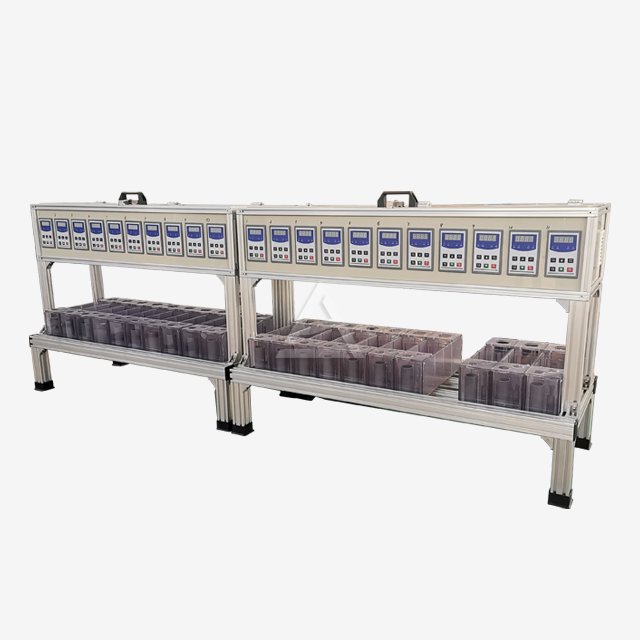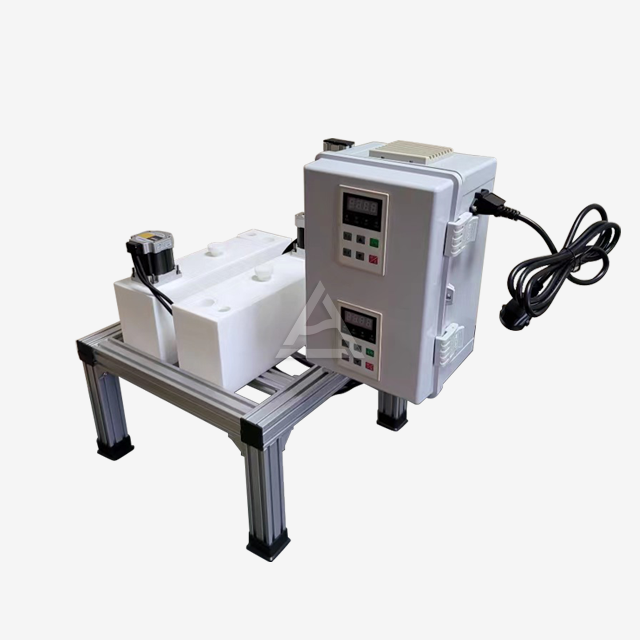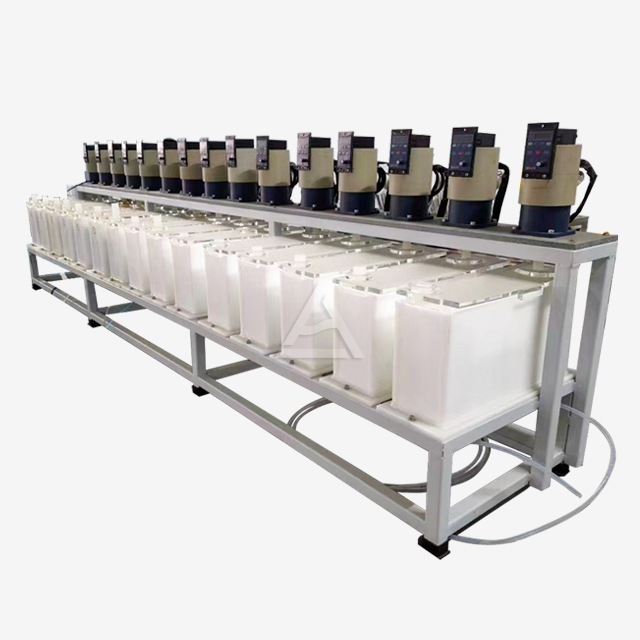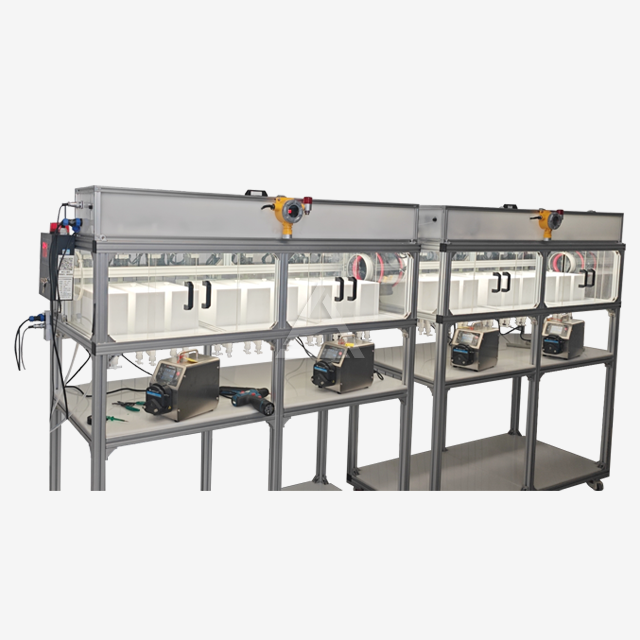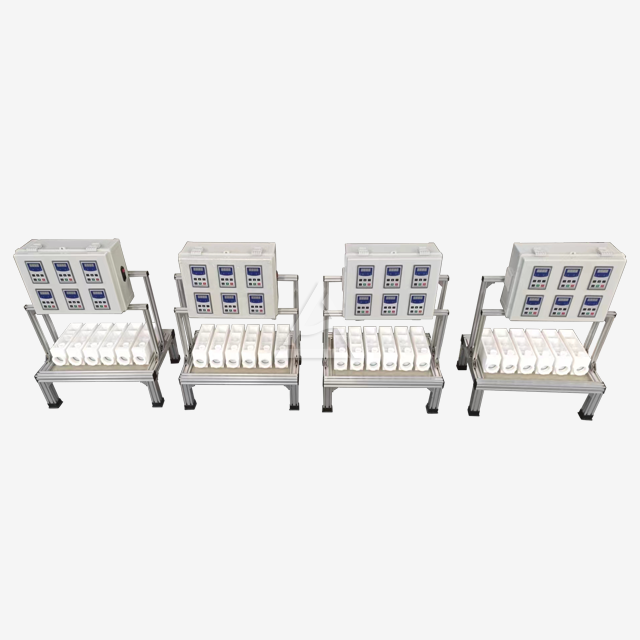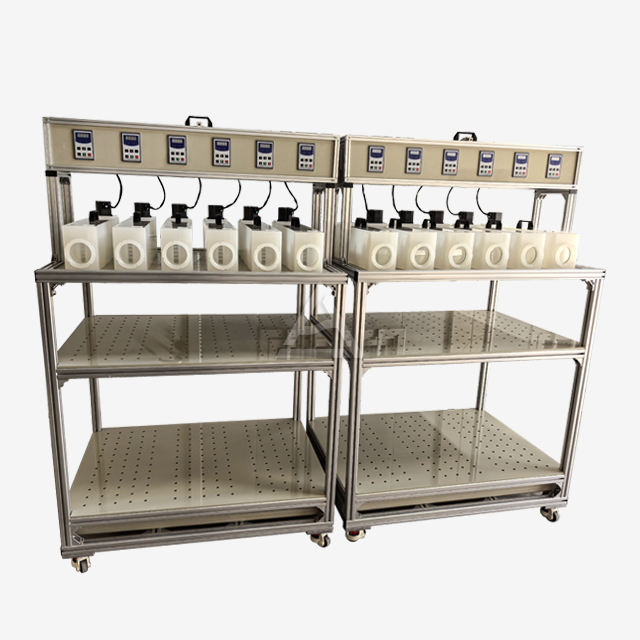Material Properties and Performance
Chemical Resistance and Durability
PP mixer settlers have gained popularity in the extraction industry due to their exceptional chemical resistance. This property makes them ideal for handling a wide range of corrosive substances and aggressive chemicals. The polymer structure of PP allows it to withstand prolonged exposure to acids, bases, and organic solvents without significant degradation. This resilience translates to longer equipment lifespan and reduced maintenance costs.
On the other hand, PPH mixer settlers take chemical resistance a step further. The homopolymer structure of PPH provides even greater resistance to chemical attack, making it suitable for more demanding extraction processes. PPH's enhanced molecular stability allows it to maintain its integrity in environments where standard PP might begin to show signs of wear.
Mechanical Strength and Impact Resistance
When it comes to mechanical properties, PPH mixer settlers have a clear advantage. The homopolymer structure of PPH results in higher crystallinity, which translates to improved tensile strength and stiffness. This enhanced mechanical strength makes PPH mixer settlers more resistant to deformation under load, a crucial factor in high-pressure extraction systems.
PP mixer settlers, while not as strong as their PPH counterparts, still offer good mechanical properties for many applications. They provide sufficient strength for standard extraction processes and are less prone to brittle fracture, which can be beneficial in environments with frequent temperature fluctuations.
Temperature Performance
Temperature resistance is another area where PPH mixer settlers shine. The higher melting point of PPH allows these units to operate at elevated temperatures without losing structural integrity. This property is particularly valuable in extraction processes that require heat to improve efficiency or in applications where exothermic reactions may occur.
PP mixer settlers, while having a lower maximum operating temperature, still perform admirably in a wide range of thermal conditions. Their lower heat deflection temperature can be an advantage in applications where frequent cleaning with hot water or steam is necessary, as they are less likely to warp or deform during rapid cooling.

Applications and Industry-Specific Considerations
Hydrometallurgical Processes
In the realm of hydrometallurgy, both PP and PPH mixer settlers play crucial roles. PP mixer settlers are often favored in copper and nickel extraction processes due to their excellent resistance to sulfuric acid and other leaching agents. Their cost-effectiveness makes them an attractive option for large-scale operations where multiple units are required.
PPH mixer settlers find their niche in more aggressive hydrometallurgical environments. Their superior chemical and mechanical properties make them ideal for rare earth element extraction, where highly corrosive conditions and elevated temperatures are common. The enhanced durability of PPH can lead to reduced downtime and lower long-term operational costs in these demanding applications.
Chemical Processing and Fine Chemical Production
In the chemical processing industry, the choice between PP and PPH mixer settlers often depends on the specific requirements of the process. PP mixer settlers are widely used in the production of organic solvents, pesticides, and pharmaceuticals where their chemical resistance and cost-effectiveness are paramount.
PPH mixer settlers excel in fine chemical production, particularly in processes involving highly reactive compounds or those requiring precise temperature control. Their superior mechanical properties allow for the construction of larger units with thinner walls, potentially improving heat transfer and mixing efficiency in critical reactions.
Wastewater Treatment and Environmental Applications
Both PP and PPH mixer settlers have found applications in wastewater treatment and environmental remediation. PP mixer settlers are commonly used in the removal of heavy metals from industrial effluents, leveraging their resistance to acidic conditions and cost-effectiveness for large-scale implementations.
PPH mixer settlers are increasingly being employed in advanced wastewater treatment processes, such as the extraction of micropollutants or the recovery of valuable resources from waste streams. Their ability to withstand harsh chemical environments and maintain structural integrity under varying conditions makes them well-suited for these challenging applications.

Economic Factors and Long-Term Considerations
Initial Investment and ROI
When considering the economic aspects of PP and PPH mixer settlers, it's essential to look beyond the initial purchase price. PP mixer settlers generally have a lower upfront cost, making them an attractive option for projects with tight budgets or those requiring a large number of units. This lower initial investment can lead to faster return on investment (ROI) in applications where the performance differences between PP and PPH are not critical.
PPH mixer settlers, while typically more expensive initially, can offer better long-term value in certain scenarios. Their enhanced durability and resistance to degradation can result in longer service life and reduced replacement frequency. For high-value extraction processes or those operating in particularly harsh conditions, the higher upfront cost of PPH units may be justified by their superior performance and longevity.
Maintenance and Operational Costs
Maintenance requirements and operational costs are crucial factors in the total cost of ownership for mixer settlers. PP mixer settlers often require more frequent inspections and potential replacements, especially in applications pushing the limits of their chemical or temperature resistance. However, their lower material cost can make replacements less financially impactful.
PPH mixer settlers generally have lower maintenance requirements due to their superior mechanical and chemical properties. This can translate to reduced downtime, lower labor costs for maintenance, and fewer interruptions to production processes. In continuous operations or critical applications, these factors can significantly offset the higher initial investment of PPH units.
Scalability and Future-Proofing
When planning for future expansion or process modifications, the choice between PP and PPH mixer settlers can have long-term implications. PP mixer settlers offer greater flexibility in terms of cost-effective scaling, allowing for easier capacity increases or system reconfigurations without incurring prohibitive expenses.
PPH mixer settlers, with their higher performance capabilities, provide a degree of future-proofing for operations. They can accommodate potential increases in process intensity, changes in chemical compositions, or shifts in operating temperatures that might exceed the capabilities of PP units. This adaptability can be valuable in industries prone to rapid technological advancements or regulatory changes.

Conclusion
Choosing between PP and PPH mixer settlers requires careful consideration of your specific application, operating conditions, and long-term goals. PP mixer settlers offer cost-effective solutions with good chemical resistance, making them suitable for many standard extraction processes. PPH mixer settlers, while more expensive, provide superior mechanical strength, temperature resistance, and durability, excelling in demanding environments and potentially offering better long-term value. By weighing the material properties, application-specific requirements, and economic factors discussed in this article, you can make an informed decision that optimizes your extraction processes and supports your operational objectives.
Contact Us
For expert guidance on selecting the right mixer settler for your specific needs, contact Cuiyan Technology. Our team of specialists can help you navigate the complexities of extraction equipment selection, ensuring you benefit from optimal performance and cost-effectiveness. Reach out to us at wangzhijun@cuiyan-tec.com to explore how our cutting-edge PP and PPH mixer settlers can enhance your extraction processes.




